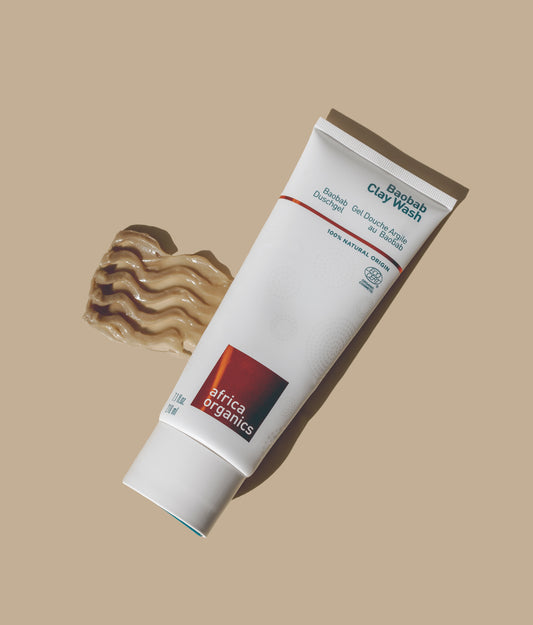BAOBAB
Baobab trees are found across equatorial Africa and can live for a thousand years. We harvest the fallen fruit sustainably from the wild and we use an extract of the fruit to deliver prebiotics and anti-oxidants.
MARULA
Marula Oil is well known as an excellent tissue oil, but it also helps to reduce dryness and breakages in hair. It is sourced from the fallen fruit of the Marula tree (much beloved by fun-seeking elephants).
MONGONGO
Mongongo trees grow particularly well in the deep sands of the Kalahari Desert and can survive droughts that span years. We use oil pressed from the seeds because it contains eleostearic acid that polymerises rapidly under UV light to form a protective film over each hair.
KALAHARI MELON
The Kalahari Melon is an important source of water for the nomadic San people of the Kalahari Desert. The high phytosterol and Omega-6 levels give it strong moisturising, restructuring and anti-ageing properties.
This range was launched to take the amazing plants of Africa to the rest of the world. When it comes to plants, South Africa is in the top three most biodiverse countries on our planet and these plants produce some of the most powerful ingredients known. We harvest the plants from the wild because they are more active that way – Africa doesn’t tame well.
While the range was coming together, we realised that we would need to think very carefully about where the plants came from and how they were harvested.
It turned out that harvesting a wild tree’s fruit could be a good thing for everyone – including the tree. The rural villagers could earn some much-needed income by harvesting and they would then attach value to the tree; so they would be less likely to use it for firewood or use the bark for weaving.
The other thing we learnt is that there are a lot of these trees out there. Africa is big and there is a lot of open bushveld. At present, these species are being utilised at a tiny percentage of what would be sustainable.
The surfactants – we chose not to use sulphated surfactants even though they would have kept the price down. They are really bad for skin and we don’t see how switching from Sodium Lauryl Sulphate to Sodium Coco Sulphate makes much difference. We’ve used glucosides and amino acid-based surfactants that are far milder on skin and are rapidly biodegradable.
Preservatives – we investigated loads of options that would keep us 100% natural, but beyond that, we strongly subscribe to the findings of the Human Microbiome Project. The microbes on our skin are very important for skin health, so let’s not disturb the natural balance. We opted for ethanol as a preservative – it’s volatile (so doesn’t stick around on the skin), it’s natural and it’s a perfect choice for sensitive skin. The perception in the past has been that ethanol is drying and strips the skin. This is true if it is at 50% in a toner, but doesn’t apply when it is used at relatively low concentrations, with oils included to offset any possible stripping effect.
Hair care actives – these were challenging. We were trying to match the instant feel of the silicones and quaterniums with purely natural ingredients, and the feedback from test groups wasn’t good. After six months we stopped and stepped back from the problem. What do people want? We figured they’d want healthy hair. The best way to deliver on that is not to focus on instant feel. Normal brands strip the hair and then replace the natural oils with synthetics. We worked with very mild foaming agents that don’t strip away as much and used plant oils to replace the natural oils on the hair. In short, we minimised the disturbance to the natural cycle. So, if you’re prepared to give the products a try for two weeks you should see great results; but don’t expect “thicker, fuller, smoother” hair instantly. Quick fixes can lead to bigger problems down the line, and we value our clients’ long-term health.
Emulsifiers – over the last ten years, we’ve honed our ability to generate stable, low pH emulsions that are rapidly biodegradable and 100% natural. Our body lotions and conditioners are stabilised at pH 5 (the natural pH of skin) and are great for keeping the microbes on your skin and scalp in balance.
Fragrance – we’ve used whole essential oils and kept the number of oils to a minimum so that the risk of allergic reactions is reduced. We used two or three oils per product.
By using Africa Organics, you will experience the effectiveness of natural African ingredients without added preservatives, and the awareness that what helps you can also help heal Africa.
All our products are rapidly biodegradable; by using them you will be contributing to the health of your watercourses. We are also endorsed by Beauty Without Cruelty and the Vegan Society.
In the interests of healthier humans inhabiting a healthier Earth, we don’t use synthetic preservatives, synthetic fragrances or synthetic colourants in our products. We have also committed to excluding parabens, petrochemicals, sulphated surfactants, animal products, ethoxylated or PEG ingredients, propylene glycol or any other ingredients red-flagged by BDIH and Ecocert standards.

